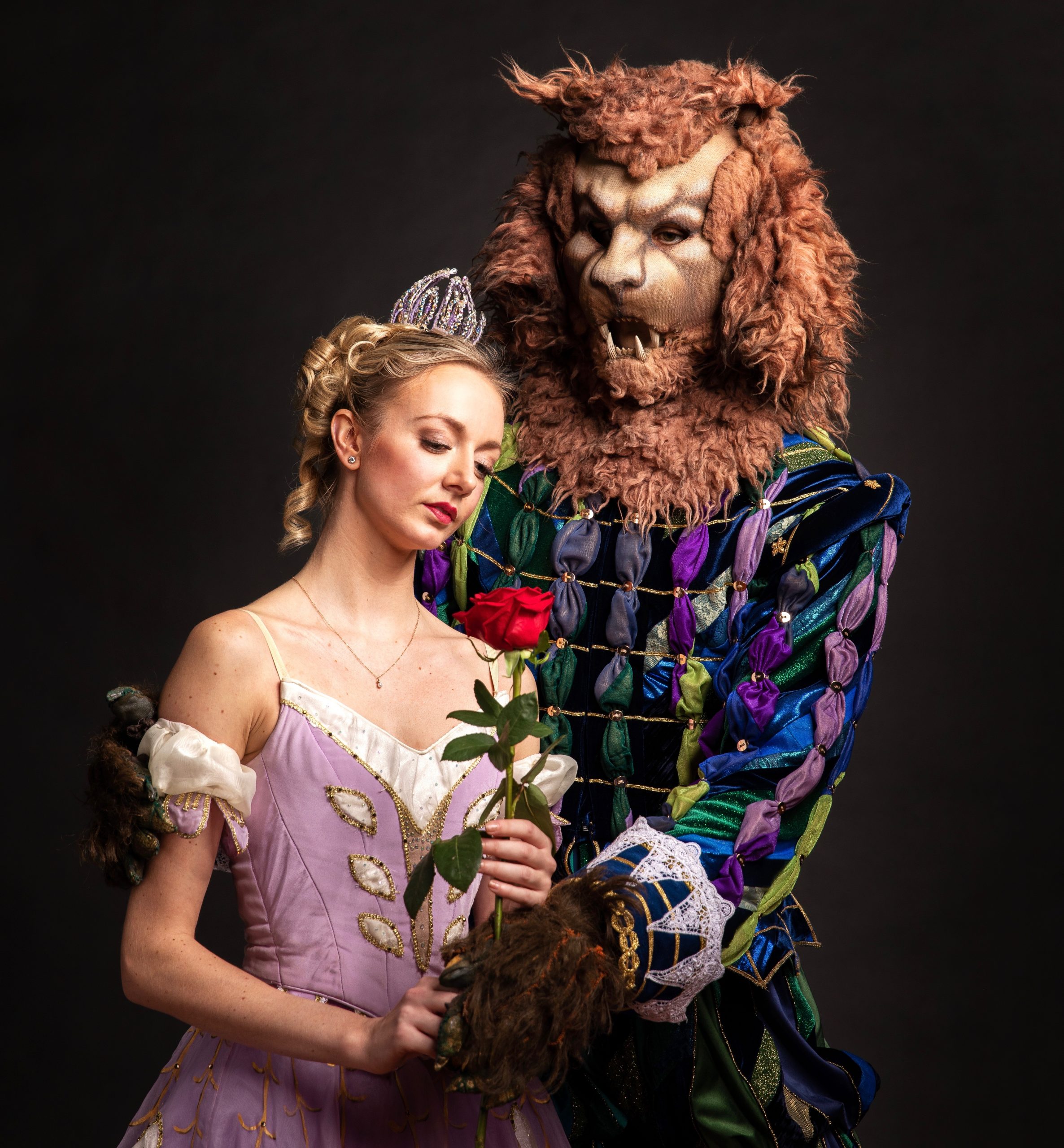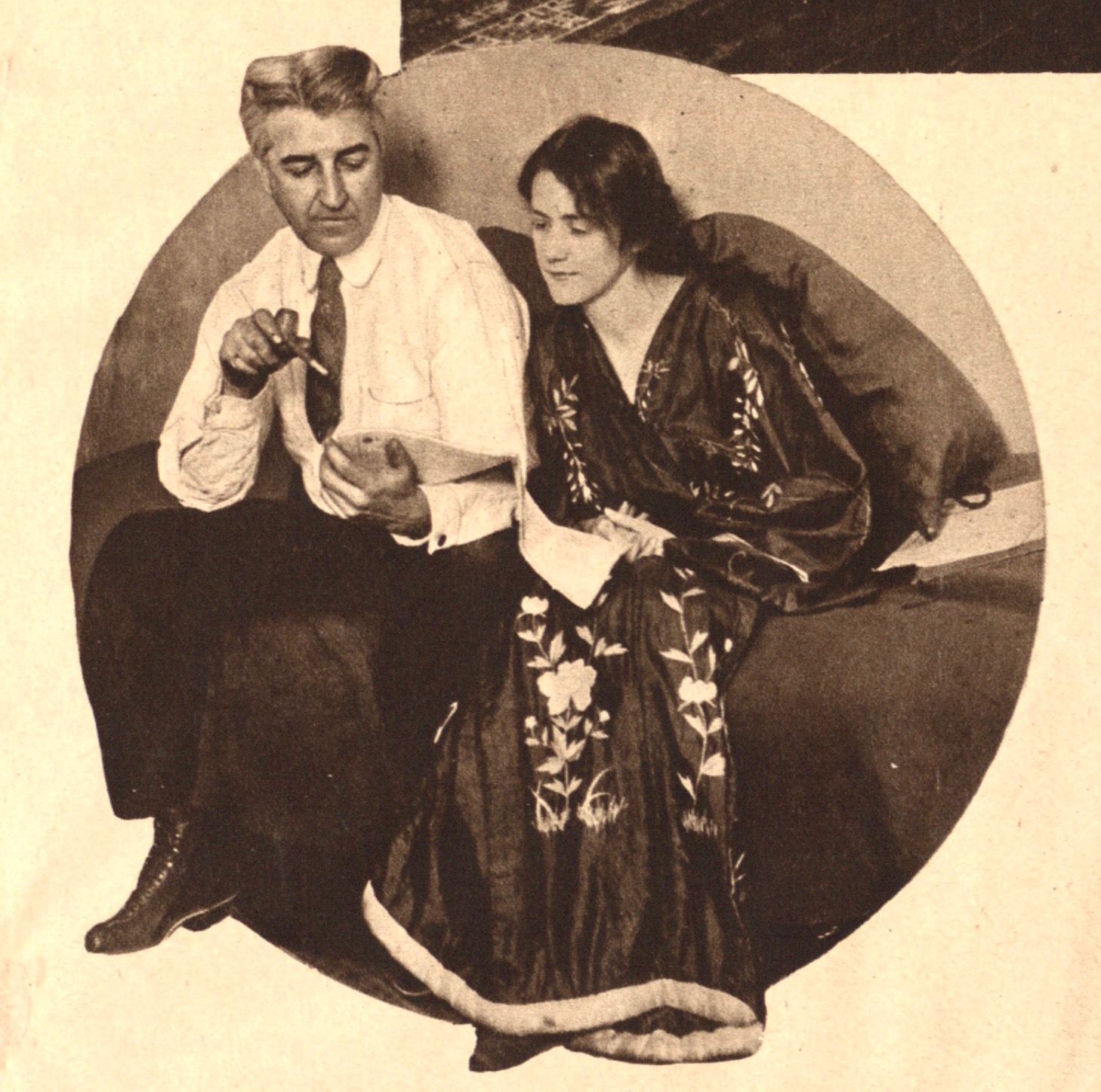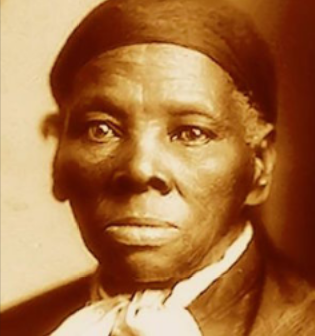February Theater Guide: Musicals Top the Slate, University Theaters Return
- Like
- Digg
- Del
- Tumblr
- VKontakte
- Buffer
- Love This
- Odnoklassniki
- Meneame
- Blogger
- Amazon
- Yahoo Mail
- Gmail
- AOL
- Newsvine
- HackerNews
- Evernote
- MySpace
- Mail.ru
- Viadeo
- Line
- Comments
- Yummly
- SMS
- Viber
- Telegram
- Subscribe
- Skype
- Facebook Messenger
- Kakao
- LiveJournal
- Yammer
- Edgar
- Fintel
- Mix
- Instapaper
- Copy Link

Before March comes in like a lion, ‘Cats’ comes to Pittsburgh in February. The touring production is among a cavalcade of musicals during the month. (photo: Matthew Murphy)
The current theater season in Pittsburgh continues to be a good one for musicals, as February brings an interesting variety of them. Meanwhile, university theater companies have shows on stage again after the holiday break, and some other notable productions come up as well.
Musical-wise: Little Shop of Horrors carries us into the month with a dark-comic take on, um, consumerism. Cats is the only musical adapted from the poetry of T.S. Eliot; we can only hope to someday get Waste Land: The Musical or Prufrock! Till then, on a serious note, Next to Normal offers a fine treatment of the perplexities of being mentally ill. Miss Saigon is the musical that opera fans would recognize as Madama Butterfly transposed to Vietnam, and Into the Woods gets a university production at Carnegie Mellon.
Two intriguing non-musical plays are scheduled elsewhere on the college circuit. To see what avant-garde theater looked like a century ago, try the 1921 Expressionist psychodrama The Verge, by Susan Glaspell, at Pitt Theatre Arts. Or to catch a very popular recent play, see Sarah DeLappe’s The Wolves at Point Park’s Pittsburgh Playhouse.
Elsewhere in general: PICT Classic Theatre stages Shakespeare’s all-time surefire crowd-pleaser, A Midsummer Night’s Dream. Pittsburgh Ballet Theatre dances Lew Christensen’s Beauty and the Beast, an exotic ballet that has been a perennial favorite in San Francisco since its 1958 debut there. And Pittsburgh Opera—the company that keeps reminding us that opera isn’t only for octogenarians—has The Last American Hammer, a new satirical one about a conspiracy theorist, a small-town museum director, and an FBI agent.
There’s much more. Shows are previewed below in order of run dates, with several spotlighted shows first, followed by a generous selection of others.
Continuing from January:
LITTLE SHOP OF HORRORS (musical) by Howard Ashman and Alan Menken. Through Feb. 23, Pittsburgh Public Theater.

Seymour (Philippe Arroyo) tries to reason with that which is unreasonable in ‘Little Shop of Horrors’ at The Public. (photo: Michael Henninger)
There’s only one musical that (a) has been interpreted as an indictment of capitalist consumerism, and (b) features a singing potted plant. Pittsburgh Public Theater returns to action in 2020 with Little Shop of Horrors. The show is bizarre and yet strangely endearing— think “Jack and the Beanstalk” meets Sweeney Todd. Our hero Seymour, a lowly worker in a florist’s shop, discovers a cute plant he names Audrey II, after the woman he’s got a crush on. Audrey II thrives and grows, making Seymour famous. However the plant subsists on human flesh and blood, and when it sings “Feed Me,” Seymour must keep the meals coming. Writer Howard Ashman based Little Shop of Horrors on a comical horror film directed by B-movie icon Roger Corman; composer Alan Menken provided the score. The 1982 musical then was made into a movie of its own, with Steve Martin playing an obnoxious guy who—whoops, no spoilers. On stage, Audrey II is an ever-growing series of puppets, eventually big enough to have an actor inside. The Public performs the show inside the O’Reilly Theater, 621 Penn Ave., Cultural District.
Shows in the EC Spotlight for February:
MISS SAIGON (musical) by Claude-Michel Schönberg, Alain Boublil, and Richard Maltby Jr. Feb. 4 – 9, touring company at Benedum Center.

In ‘Miss Saigon,’ love blooms but does not necessarily conquer all. (photo: Matthew Murphy)
Miss Saigon has been admired for its artistry since its 1989 premiere in London’s West End, and also has spurred much controversy. The new touring production gives Pittsburghers a chance to see the musical afresh; it’s booked into the Benedum for six days. Composer Claude-Michel Schönberg and lyricist Alain Boublil wrote Miss Saigon after scoring a previous global hit with Les Miserables. The French duo took their subject matter this time not from a great novel, but from turbulent events in a onetime French colony, Vietnam. After winning independence, Vietnam was plunged into its long internal war marked by U.S. involvement. Miss Saigon—a fictional story set amid real history—begins as the last American troops are about to be forced from that city in 1975. A U.S. sergeant and a young Vietnamese woman have an 11th-hour love affair. They vow to stay together, but the soldier is abruptly yanked out of Saigon and sent home, setting off a drama that doesn’t look likely to end well for the young woman.
With an emotionally charged story and powerful music, Miss Saigon did well in London, then moved to Broadway. Early controversies arose over the use of white actors to play Asian characters, a practice now ended. What have continued are protests and backlash against the show’s content and tone. Critics have charged that Miss Saigon trades on stereotypes of Asians, creating a musical that reinforces old-line Euro-dominant views. We shall see what comes up about these concerns when the show goes on at Benedum Center. 237 7th Ave., Cultural District.
NEXT TO NORMAL (musical) by Brian Yorkey and Tom Kitt. Feb. 7 – 15, Split Stage Productions.
One of Broadway’s most striking musicals began as a 10-minute sketch about electroshock therapy. Writer Brian Yorkey and composer Tom Kitt wrote the short piece “Feeling Electric” as a workshop exercise. Then a larger subject beckoned: the conditions that could lead someone to seek treatment in the first place. Next to Normal tells a fictional story of mental illness in a suburban family. The woman of the house apparently has bipolar disorder. She’s also delusional, as a hair-raising scene reveals. Next to Normal won the 2010 Pulitzer Prize for Drama, along with praise for exploring the dilemmas and ironies faced in mental illness. The best-known song, “I Miss the Mountains,” is a lament sung when medication takes away the manic highs of bipolar disorder. Split Stage Productions performs Next to Normal at the Greensburg Garden & Civic Center, 951 Old Salem Rd., Greensburg.
A MIDSUMMER NIGHT’S DREAM by William Shakespeare. Feb. 13 – 29, PICT Classic Theatre.

Looking elusive but proving steadfast, Helena is a key character amid the hijinks in ‘A Midsummer Night’s Dream.’ Zoe Abuyuan plays the role for PICT. (photo: Maria Palermo)
Do we overthink Shakespeare? Maybe a wee bit. Scholars have created an industry around analyzing his plays. Pedagogues press their pupils to pick apart the plays piece by piece on the printed page, forgetting that plays are penned to be performed. But take heart: PICT Classic Theatre is performing A Midsummer Night’s Dream. Which is hardly unusual—it’s one of the most performed plays, period—although PICT does present Pittsburghers with an opportunity to perceive it anew. Once again, mythical lovers will quarrel while the rude mechanicals, a.k.a. the blue collar workers, comically prepare their play within the play. Titania, under the influence of a magic potion, will fall in love with a man whose head has been turned into the head of an ass. Other forms of magical un-realism will occur. You can decide whether A Midsummer Night’s Dream reflects Marxist theories of class struggle, or has relevance to gender dynamics or the evolution of theater. And if you’re looking for a bottom line, Puck will say—wait for it—”What fools these mortals be.” In the Fred Rogers Studio at WQED, 4802 Fifth Ave., Oakland.
BEAUTY AND THE BEAST (ballet) by Lew Christensen, to music by Peter Ilych Tchaikovsky. Feb. 14 – 23, Pittsburgh Ballet Theatre.

Dancers Hannah Carter and Alejandro Diaz make a picture-perfect couple in PBT’s ‘Beauty and the Beast.’ (photo: Duane Rieder)
The “Beauty and the Beast” fantasy tale has been dramatized in various forms, and opinions are divided on which version is best. Many with high-art tastes prefer Jean Cocteau’s haunting black and white film of 1946, in French with English subtitles, while many more go for the Disney animated movie. And, unbeknownst to most, a smaller but enthusiastic third party has emerged. They are dance fans who love the Beauty and the Beast ballet. The ballet is a modern one—created and choreographed in 1958 by Lew Christensen for the San Francisco Ballet, where he was the director, and set to arrangements from Tchaikovsky’s music. Pittsburgh Ballet Theatre dances Christensen’s Beauty and the Beast at Benedum Center this month. It’s a thrill ride for the senses, as the story lends itself to dance. Powerful scenes in the Cocteau film were built around the actors’ entrancing, dance-like movements, with little or no dialogue. Christensen took the concept all the way and then some, adding scenes that include enchanted forest animals and a rousing wedding dance at the end. 237 7th St., Cultural District.
THE LAST AMERICAN HAMMER (opera) by Peter Hilliard and Matt Boresi. Feb. 22 – March 1, Pittsburgh Opera.

Would you trust this man with your toby jug? Baritone Tim Mix is the militant museum invader in ‘The Last American Hammer’ at Pittsburgh Opera. (photo: Roy Cox)
Contemporary operas have been written about subjects that Mozart couldn’t have imagined, from the civil rights movement to climbers on Mt. Everest. Now Pittsburgh Opera is staging The Last American Hammer, about a conspiracy theorist in a toby jug museum. This is a satirical chamber opera, with a cast of three and a seven-piece musical ensemble. The central character, an unemployed hammersmith in a down-and-out town, believes the U.S. government has no legitimate authority and has betrayed the country. Clad in militia gear, he protests by conducting a solo “occupation” of the town’s toby jug museum. We are not making this up—librettist Matt Boresi and composer Peter Hilliard did—but, a toby jug is a ceramic jug or mug in the shape of a person, and there is a real American Toby Jug Museum in Evanston, Illinois. Pittsburgh Opera’s production of The Last American Hammer has baritone Tim Mix as the irate militant, soprano Caitlin Gotimer as the museum director, and mezzo-soprano Antonia Botti-Lodovico as an FBI agent on the case. At Pittsburgh Opera headquarters, 2425 Liberty Ave., Strip District.
CATS (musical) by Andrew Lloyd Webber, from T.S. Eliot’s poems. Feb. 25 – March 1, touring company at Benedum Center.

If you’ve had them, you know that cats can be very guilt-inducing when they desire attention, as Grizabella does here in ‘Cats.’ (photo: Matthew Murphy)
It’s unclear whether T.S. Eliot would be amused, or has rolled over in his grave. Eliot received the 1948 Nobel Prize for Literature. He once was lionized for revolutionizing modern poetry with works such as “The Love Song of J. Alfred Prufrock” and “The Waste Land.” And yet now, most people know of Eliot through a Broadway musical based on a little book of doggerel that he wrote for his godchildren. “The Naming of Cats is a difficult matter / It isn’t just one of your holiday games / You may think at first I’m as mad as a hatter / When I tell you, a cat must have THREE DIFFERENT NAMES”: So begins Old Possum’s Book of Practical Cats. You’ll hear the lines (and many more) verbatim in Andrew Lloyd Webber’s Cats, which visits Pittsburgh in a touring production for an 8-performance run.
Cats was supposed to arrive here riding momentum from the recently released movie version. Unfortunately the movie pretty much laid an egg (or, let’s say, a hairball). But the stage show remains phenomenally popular, for some obvious reasons. Lloyd Webber could draw crowds by dramatizing and musical-izing a technical manual. The Eliot poems, though not exactly masterpieces of the Western canon, gave him good, unusual material to work with. And there are lots of cat lovers. Benedum Center, 237 7th St., Cultural District.

City Theatre has Julianne Avolio as a woman with a new baby, and a new set of predicaments, in ‘Cry It Out.’ (photo courtesy of the artist)
CRY IT OUT by Molly Smith Metzler. Feb. 29 – March 22, City Theatre.
City Theatre, devoted to producing plays not yet seen in Pittsburgh, gives us a new one about the adventures of early-stage motherhood. Molly Smith Metzler’s socio-comedy Cry It Out imagines three women with newborns who meet and exchange experiences. They’re all working moms on maternity leave, which puts each of them in the unusual position of being housebound with a wee one. And they’re from quite different backgrounds: one a corporate professional woman, one a low-income single mom, and one a fabulously wealthy jewelry designer. As a synopsis from the play’s publisher puts it, Cry It Out examines “the absurdities of being home with a baby, the power of female friendship, the dilemma of going back to work, and the effect class has on parenthood in America.” City Theatre’s cast has Julianne Avolio, Sarah Goeke, and Rebecca Hirota as the moms, with Pittsburgh-area favorite Tim McGeever as the lone guy in Cry It Out. 1300 Bingham St., South Side.
Other Productions in the Region:
THE C-WORD by Olivia LeSeur. Through Feb. 2, Duquesne University Red Masquers.
Duquesne University’s Red Masquers return to action after the winter break with Olivia LeSeur’s new play The C-Word, a dark comedy about mental illness as perceived by different generations. The play follows a young woman returning from a psychiatric hospital to live with her mother, which seems not to be the best discharge plan. In the Genesius Theater on the Duquesne campus, 1225 Seitz St., Uptown.
TERMINER by Philip Wesley Gates. Feb. 6 – 7 at the New Hazlett.
In show biz, the premiere of something radically new may call for ‘splaining in advance. Writer-director Philip Wesley Gates prepares us for Terminer in the video above, and in web postings that describe the play as “an algorithmic performance using the Salem witch trials to interrogate contemporary intersections of gender, technology, and power.” Reflecting the influence of software and AI, Terminer features “a queer cyborg coven … performing a ritual for the future of humankind.” At the New Hazlett Theater, 6 Allegheny Square East, North Side.
THE VERGE by Susan Glaspell. Feb. 6 – 16, Pitt Department of Theatre Arts.

Susan Glaspell, posed here with her husband and colleague George Cram Cook, helped to blaze new directions in American theater. (photo: Paul Thompson for the New York Tribune, 1917)
One of the performing arts’ near-forgotten heroes is Susan Glaspell, who in 1915 cofounded the legendary Provincetown Players—an early experimental theater company—and went on to acclaim as America’s premier modern female playwright. There’s been a revival of interest in Glaspell lately, and Pitt’s Department of Theatre Arts is producing her edgiest play, 1921’s The Verge. Done in a striking Expressionist style, The Verge is about a woman who feels trapped in life on her upper-class estate and gradually rebels, seeking the “madness that is the only chance for sanity.” At the Charity Randall Theatre in the Stephen Foster Memorial, 4301 Forbes Ave., Oakland.
QUENTIN CRISP: THE LAST WORD (one-person show) by Philip Ward, from Crisp’s late-life memoir. Feb. 6 – 16, performed by Brian Edward.

Quentin Crisp, rebellious in youth and a singular writer and performer in his later years, had a long run as a living legend. (photo: Ross B. Lewis, 1992, via Creative Commons SA 4.0)
Long before the 1960s, Quentin Crisp was a remarkable figure in London’s counterculture. As a young gay man in the ’20s and ’30s, he was flamboyantly out at a time when such daring invited public scorn and occasional beat-downs. Later, he quietly became a published writer—and then not-so-quietly burst upon the larger scene when his 1968 autobiography, The Naked Civil Servant, was made into a TV movie. From then until passing away in 1999 at age 90, Crisp embarked on a multifaceted career as a film actor, stage performer, and much-in-demand interview subject who’d voice contrarian views with good-natured geniality. Pittsburgh now hosts the world premiere of a one-person play titled Quentin Crisp: The Last Word. It was adapted from Crisp’s late-life memoir by his fellow author Phillip Ward and by Pittsburgh theater artist Brian Edward, who portrays Crisp. In City Theatre’s Hamburg Studio, 1300 Bingham St., South Side.
BODIOGRAPHY’S UNVEILED (dance, multiple works). Feb. 7 – 8, Bodiography Contemporary Ballet.
Pittsburgh’s Bodiography Contemporary Ballet, associated with the Bodiography dance school and fitness center in Squirrel Hill, presents a program of modern dance and ballet pieces under the title Unveiled. Works include Jacqulyn Buglisi’s “Threshhold,” a re-staging of Martha Graham’s “Steps in the Street,” and several new pieces including the premiere of “Psalm 23” by Maria Caruso, Bodiography’s founding artistic director. Byham Theater, 101 6th St., Cultural District.
TOO HEAVY FOR YOUR POCKET by Jiréh Breon Holder. Feb. 7 – 23, New Horizon Theater.
New Horizon Theater, producing theater from African-American points of view since 1992 in Pittsburgh, presents a play about the Freedom Riders movement. In 1961, young men and women from around the country challenged the era’s segregation laws by teaming up to ride interstate buses across the South in mixed-race groups. It was a dangerous venture: Freedom Riders faced howling mob scenes, violent beatings, and jail. Too Heavy for Your Pocket, by playwright and screenwriter Jiréh Breon Holder, imagines the personal drama surrounding a young man who decides to give up a precious college scholarship to join the movement. The play has received strong reviews in New York. New Horizons’ cast for Too Heavy for Your Pocket includes Hope Anthony, Jadah Johnson, Brenden Peifer, and Maurice Redwood. At the Falk School auditorium, 4060 Allequippa St., Oakland.
PEE-WEE’S BURLESQUE HOUSE by Boom Boom Bridgette, Heidi Nagle, and others. Feb 8 – 9, the company at Carnegie Stage.
Amid the legions of Pee Wee Herman fans are some of Pittsburgh’s leading burlesque and comedy artists, and they converge on Carnegie Stage to perform Pee-Wee’s Burlesque House. Created as both a tribute to the works of Pee Wee and a take-off on them, Pee-Wee’s Burlesque House is not officially affiliated with Pee Wee Herman—although of course he is portrayed in it—and not for audiences under 18. The show is the brainchild of Boom Boom Bridgette and Heidi Nagle, the latter of whom plays Pee Wee. Much merriment is promised. 25 W. Main St., Carnegie.
ROMEO AND JULIET by William Shakespeare. Feb. 14 – 23, Lincoln Park Performing Arts Center.
Maybe you’ve seen the Baz Luhrmann film of Shakespeare’s Romeo and Juliet, which imagines the Montagues and Capulets as modern-day urban crime families, with TV news reports giving updates on their rivalry. But have you seen Romeo and Juliet in Midland, Pennsylvania, performed live at our region’s only comprehensive new theater center in a postindustrial town? Lincoln Park Performing Arts Center stages the Bard’s tragicomic classic at One Lincoln Place, Midland.
C.S. LEWIS’ THE GREAT DIVORCE by Max McLean, from the novel. Feb. 15 only, 4 p.m., Fellowship for Performing Arts on tour at the Byham Theater.
People who go to The Great Divorce expecting a play about a couple breaking up will be surprised. This is a seriocomic, allegorical fantasy about Heaven, Hell, and the weird choices people make en route to one or the other. It’s based on the novel by C.S. Lewis, who chose the title as an ironic reference to William Blake’s “The Marriage of Heaven and Hell.” The New York-based Fellowship for Performing Arts company—who visited Pittsburgh last year with an adaptation of Lewis’ The Screwtape Letters—now bring C.S. Lewis’ The Great Divorce to the Byham Theater. 4 p.m. 101 Sixth St., Cultural District.
100 YEARS STRAY by SaringROCK. Feb. 19 – 21, Carnegie Mellon University.
“Children go missing, meteors rain from the sky and a blue demon lurks just out of sight.” That’s from a promo blurb for 100 Years Stray, a new post-apocalyptic drama by the Japanese playwright SaringROCK. See it in a Carnegie Mellon School of Drama production at CMU’s Purnell Center for the Arts, 5000 Forbes Ave., Oakland.
THE SUNSHINE BOYS by Neil Simon. Feb. 20 – 22, Greensburg Civic Theatre.
Neil Simon’s The Odd Couple is perhaps the best-known play about two men literally at odds with one another, but Simon also wrote one that many people like even better, The Sunshine Boys. The “boys” are two elderly guys who once had a vaudeville act in which they were best buddies on stage but mutually hostile in real life. When a TV special brings them together for a late-life reunion, it doesn’t go smoothly. Greensburg Civic Theatre performs The Sunshine Boys at Greensburg Garden & Civic Center, 951 Old Salem Rd., Greensburg.
SAVAGE LANDS: A COLONIAL COMEDY by Timothy Ruppert. Feb. 20-29, Duquesne University Red Masquers.
As settlers from the British Isles moved across North America in colonial times, clashes with the people who’d been there since time immemorial were understandably common, and no laughing matter. But a new play by Pittsburgh-based writer Timothy Ruppert imagines a humorous situation. A woman among the newcomers finds that her husband has been abducted by the Mohawks … or, has he run off with another woman? … and then the plot thickens. The Duquesne University Red Masquers present Ruppert’s Savage Lands: A Colonial Comedy in the Genesius Theater on campus. 1225 Seitz St., Uptown.
TUBMAN by Lacresha Berry (one-person show). Feb. 21 only, 7 p.m., the artist at August Wilson Cultural Center.

Harriet Tubman meant business. This photo is undated; the new play ‘Tubman’ imagines her in the present.
Harriet Tubman had powers that seemed otherworldly. Escaping from slavery in the antebellum South, she returned to lead many more daring escapes—outwitting pursuers, defying the odds, crediting her success to divine guidance. In the Civil War, she co-led a Union Army raid that liberated entire plantations. Now there is a one-woman play that literally places her in another world. Tubman, by Lacresha Berry, imagines the 1800s heroine in today’s Harlem, asking how she’d respond to current racial issues. Berry, a New York theater artist, performs Tubman at the August Wilson Cultural Center, 980 Liberty Ave., Cultural District.
INTO THE WOODS (musical) by Stephen Sondheim and James Lapine. Feb. 20 – 29, Carnegie Mellon School of Drama.
The Stephen Sondheim/James Lapine musical Into the Woods has been a subject of aesthetic controversy since its 1987 Broadway debut. Some call this mashup of dark fairy tales a masterpiece, some consider it brilliant but flawed, and some just say Whaaat? To complicate things, many people know Into the Woods only from the 2014 movie version (see clip above), which has brilliances and flaws of its own. The musical deserves a viewing live on stage, and Carnegie Mellon’s School of Drama is presenting it that way. See Little Red Ridinghood and the Wolf, Cinderella, and the rest of the mysterious gang in CMU’s Purnell Center for the Arts, 5000 Forbes Ave., Oakland.
THE WOLVES by Sarah DeLappe. Feb. 20 – March 8, Point Park Conservatory Theatre.
Emerging playwright Sarah DeLappe scored a near miss that’s actually a hit when her play The Wolves was named a finalist for the 2017 Pulitzer Prize for Drama. It’s about a female high-school soccer team called the Wolves, whose players must kick through myriad traumas on the path to growing up. The play has won an ardent fan base. Point Park Conservatory Theatre performs The Wolves at the Pittsburgh Playhouse, 350 Forbes Ave., Downtown.
METAMORPHOSIS (modern dance) by Maria Caruso. Feb. 29 only, 8 p.m., Bodiography Contemporary Ballet.

Bodiography’s Maria Caruso will dance her ‘Metamorphosis’ for hometown fans. (photo courtesy of the artist)
Maria Caruso, artistic director of Pittsburgh’s Bodiography Contemporary Ballet, performs the U.S. premiere of her extended solo dance Metamorphosis at a special one-night event. Inspired partly by Martha Graham’s “Lamentation,” an iconic short solo, Metamorphosis debuted at Israel’s Karmiel Dance Festival in 2018 and has been performed in other countries since then. Caruso is staging the Pittsburgh show at The Factory, an experimental arts space in the Chateau district adjacent to Manchester. 1501 Preble Ave., Chateau.
Long-Running
THE BOOK OF MERMAN (cabaret musical) by Leo Schwartz and DC Cathro. Through March 8, Pittsburgh CLO Cabaret.
Rumor has it that some people think The Book of Merman is a musical about the aquatic man from The Shape of Water. Not so. The truth is stranger. The Book of Merman imagines two Mormon missionaries visiting Ethel Merman. And to those who ask “Who’s she?” we reply: Ethel was once the ebullient, comically naughty queen of Broadway divas. Her singing and acting in Depression-era shows like Anything Goes (as seen in the movie version) made her the poster woman for musical theater as a spirits-lifter. She went on to star in other shows and cheerfully guest-star on postwar TV, while headlining in the gossip columns with her flings and multiple marriages. Then long after Merman’s death came The Book of Mormon, which by way of wordplay inspired the idea of the two guys ringing Ethel’s doorbell. The resulting show, by writer DC Cathro and composer Leo Schwartz, has drawn hoots at smaller venues in Chicago, New York, and elsewhere. Pittsburgh CLO stages The Book of Merman in the Greer Cabaret Theater, 655 Penn Ave., Cultural District.
Mike Vargo, a Pittsburgh-based freelance writer, covers theater for Entertainment Central.
Share on Social Media
- Like
- Digg
- Del
- Tumblr
- VKontakte
- Buffer
- Love This
- Odnoklassniki
- Meneame
- Blogger
- Amazon
- Yahoo Mail
- Gmail
- AOL
- Newsvine
- HackerNews
- Evernote
- MySpace
- Mail.ru
- Viadeo
- Line
- Comments
- Yummly
- SMS
- Viber
- Telegram
- Subscribe
- Skype
- Facebook Messenger
- Kakao
- LiveJournal
- Yammer
- Edgar
- Fintel
- Mix
- Instapaper
- Copy Link
Follow Entertainment Central
Sign up for the EC Newsletter
Latest Stories







